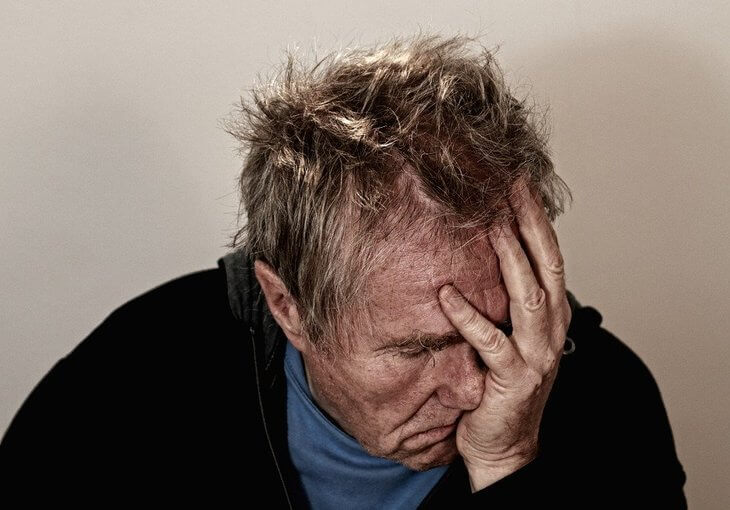Antibiotics & Hair Loss: Everything You Need to Know
- Written by Lordhair Team
- Feb 4, 2020
- |
- 4 min read
 Listen to the full text
Listen to the full textAntibiotics are prescribed globally to fight common as well as life-threatening diseases. While their role in improving overall lifespan & health cannot be ignored, they bring their share of complications for some patients. Hair loss is a widely reported side effect of some antibiotics.
Lordhair is here to create awareness about the complex relationship between antibiotics and hair loss so that men and women across the world can make informed medication choices. Let’s start with a quick definition of antibiotics.
What are antibiotics?
Antibiotics - known as antibacterials - are medications that destroy or retard bacterial growth. They include a variety of compounds to cure multiple bacterial diseases. Here are some interesting facts about antibiotics:
- They were first discovered by Alexander Fleming in 1928.
- Antibiotics either kill or slow the growth of bacteria.
- Antibiotics cannot fight viral infections.
- Common side effects are nausea and diarrhea.

Having explained the core concepts of antibiotics, let’s talk about the hair loss element of antibiotics.
How antibiotics cause hair loss?
The relationship between antibiotics and hair loss is scientifically proven. Antibiotics can deplete vitamin B and hemoglobin in our body, increasing the chances of becoming anemic. The resulting condition can lead to hair loss in men as well as women and in some cases severe hair fall.
There are amply documented cases all over the globe stating that some antibiotics trigger hair loss. While this was a brief introduction to antibiotics and how they cause hair loss, it’s time to learn about antibacterials that are infamous for triggering hair fall:
Antibiotics that cause hair loss
Penicillin
Penicillin (PCN) is a group of antibiotics that includes penicillin G, penicillin V, procaine penicillin, and benzathine penicillin. This antibiotic is widely used today but many bacteria have developed resistance against it over the passage of time. A widely reported side effect of this antibiotic is hair loss.
Undoubtedly, penicillin is a revolutionary antibiotic that helps treat a vast array of diseases but it has been reported that its continuous consumption can trigger hair loss in some patients.
Erythromycin
Erythromycin is widely prescribed for chlamydia infections, pelvic inflammatory disease, respiratory tract infections, skin infections, and syphilis. However, patients have reported hair loss after using Erythromycin for an extended period of time.
The side effects of erythromycin are not only hair loss; in some cases, it has led to the bluish discoloration of the skin too. If you use the medication for bacterial infection, watch out for side effects and report to your physician as soon as possible!
Fight medical hair loss with highly realistic human hair systems!
Cefpodoxime
Cefpodoxime is used to treat bacterial infections such as pneumonia, gonorrhea (STD) and bronchitis. This antibiotic treats infections of the skin, ears, sinuses, throat, tonsils, and urinary tract. However, the use of cefpodoxime has reported a negative impact on patients' hair.
In addition to hair loss, this antibiotic has some major side effects like bloody nose and blurred vision. There are no known reports of all these side effects occurring at the same time but immediate medical attention should be sought on their emergence.

Clindamycin
Clindamycin oral capsule or topical solution is a prescription medication available as a generic drug and can be prescribed to treat or prevent many infections such as severe middle ear infections and sinus infection caused by bacteria.
Though clindamycin is an effective antibiotic to cure the above infections, it has several side effects too. These include moderate to severe hair loss, rashes, pruritus, blisters, skin discoloration, and other skin or scalp related diseases.
Cephalexin
Cefalexin, also available as cephalexin, is an antibiotic that can treat a number of bacterial infections. It disrupts the growth of the bacterial cell wall to cure diseases but in this process, it sometimes triggers hair loss.
This medicine contributes to hair loss in an indirect manner. Cephalexin reaction sometimes may lead to diarrhea. Lack of fluids leads to depletion of nutrition in hair follicles and results in weakened hair strands.
There are many other antibiotics that are said to cause hair loss but above 5 are clinically proven for causing depleting hairline in men and women.
Fighting antibiotics triggered hair loss
When an antibiotic causes hair loss, it is best to consult your physician and discuss other alternatives for prescribed medicine. In case the medication has no alternative, then, it is best to fight temporary hair loss by taking better care of your hair and using hair replacement systems!

Hair replacement systems are widely used to fight hair loss caused by antibiotics and medical treatments. Modern hair systems are highly realistic and bring a wide range of coverage options (partial or full).
Lordhair designs and ships hair systems to over 100 countries across the world at unbelievably affordable prices. Take a look at how easily you can retain a full head of hair by wearing a custom hair system!
Fight temporary hair loss by wearing high-quality stock and custom human hair systems from Lordhair! Send in your questions to support@lordhair.com for further insights on non-surgical hair replacement solutions.
Further reading on medical hair loss conditions:
Follow Lordhair on Pinterest for wisdom related to hair styling, hair care, and growth!




